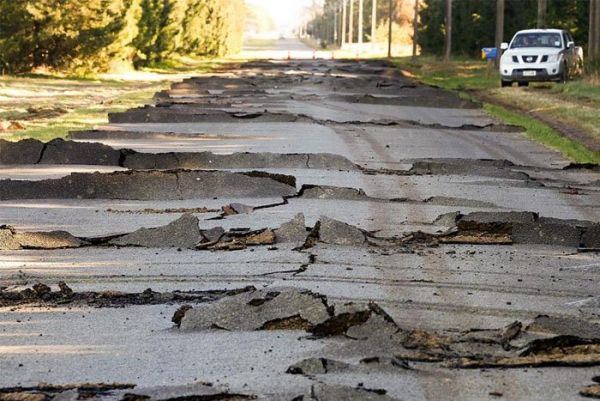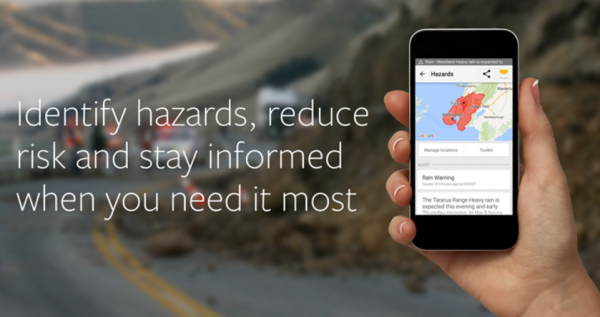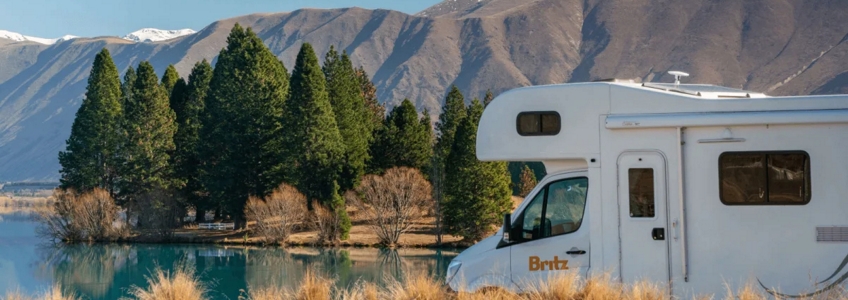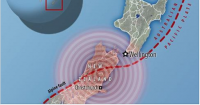Preparing for natural disasters wherever you travel in the world is always a must. Sadly, climate change is having a direct effect on our weather system.The recent Kaikoura Earthquake and now the flash flooding that has hit the Bay Of Plenty has prompted us to put out some recommendations to help keep you safe in your motorhome in the event of any natural disaster.

Keep Safe In a Motorhome During a Natural Disaster
- Before you leave on your motorhome holiday, pack a bag to hold any important medications or health items, valuables and other irreplaceable items, financial documents and credit cards, insurance policy paperwork, passports and other emergency essentials and keep it in one place in the motorhome so it can be grabbed easily as you go to a safe location.
- If there is ever a need to urgently evacuate the area by leaving your motorhome don’t wait around protecting possessions or the motorhome. They can be replaced, lives can't.
EARTHQUAKES
- If you are on the road during an earthquake, then you should safely pull your van over and wait for the earthquake to subside. Stay seated with your seat belt fastened. Cover yourself with a blanket or other. Avoid pulling over near poles, rock faces or big trees. If you’ve already parked up for the night and camping under trees, move your motorhome away as soon as the quake stops. If you are near the beach, head for higher ground as soon as possible.
- Fortunately, being inside a Motorhome during a quake is not the worst place to be as their exteriors are mostly made out of fibreglass and are designed to move around a lot while on the road. You also have a mobile shelter with food and water aboard. It’s better to stay in your motorhome than to go outside. As soon as you feel the rumbles of an oncoming earthquake, get down low and under one of the voids in the motorhome i.e. under the table or bed. Don’t try to save everything on your shelves, you run a higher chance of getting hurt that way.
.jpg)
FLASH FLOODING
- The number one rule when you encounter any water crossing the road is to turn around.
- NEVER risk driving through flooded highway dips or low drainage areas.
- Be especially cautious at night when it is harder to see flood dangers.
- If your motorhome gets swept away in a flood or suddenly caught in rising water, leave it immediately and seek higher ground. If your motorhome suddenly becomes submerged, don't panic. Open windows before your vehicle becomes completely submerged and escape by them if possible. If you can't open windows, don't panic. Wait until the water pressure is equal on both sides of your doors so they will open.
- If you are forced to abandon your vehicle get yourself to higher ground quickly and avoid creeks or ditches that can channel swift water.
- Do not attempt to cross flooded roads or streams on foot. The water may be flowing more rapidly than it appears, and it can take as little as six inches of water to knock an adult off their feet.
.jpg)
After A Natural Disaster Hits
In the case of an earthquake, take into account the possibility of aftershocks. Turn off your gas bottle, unplug your electrics and preserve as much water as you can. Secure anything loose or fallen. If you are camping on the beach move your motorhome to higher ground if possible and finally check in with any of the civil offense updates.
Don’t depend on just one source of info, such as a weather app. Have multiple ways of receiving information. Here is a list of reliable information sources you can connect to within New Zealand
Radio - Turn on your radio as soon as you can to get live updates and news
Websites - http://www.getthru.govt.nz/disasters/earthquake/ or http://www.civildefence.govt.nz/
Apps - These days apps are essentials especially as they can be used to receive alerts offline even if without cell phone coverage or internet. Reseach the best apps for you and download them to your phone or device before you leave on holiday and while you have an internet connection. Here are a couple we would recommend
Campermate - Their location based alerts system means Civil Defence warnings can be pushed out as messages to where ever your location in New Zealand even remote areas.
Hazards – Red Cross - Monitor up to 5 locations, send “I am safe” messages to friends and family, access pre-loaded information anytime, anywhere even without cell phone reception or internet connection 
Metservice Marine - New Zealand weather forecasts, local information and more
Emergency Phone Number - In New Zealand, the number to call if you need the Fire service, Police or an ambulance in an emergency is 111
Twitter of Facebook
@NZcivildefence, @NZRedCross or search in your newsfeed under #eqnz for live updates



